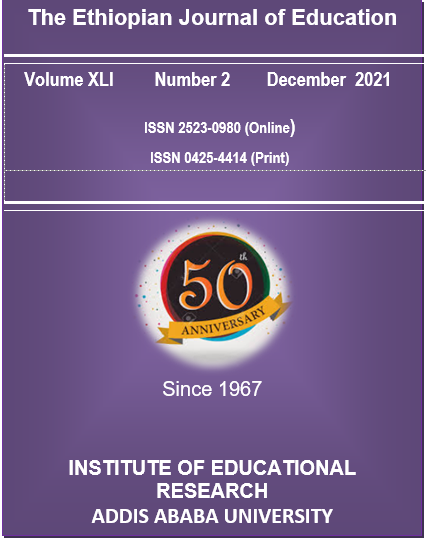Educating the Heart: Space for Teachers' Professional Identity Development through Pre-Service Primary Teacher Education in Ethiopia
Keywords:
professional identity development, teacher education, teacher education pedagogy, teacher educator, teacher professional identityAbstract
Teachers' professional identity is generally taken as the professional self-concept of teachers. It is connected to several other factors related to professional effectiveness such as job satisfaction, professional self-identification, self-efficacy, motivation, and continued attachment to teaching. Complete education of the teacher needs to include not only the cognitive and technical skills of teaching but also the affective components - a love for teaching, commitment for teaching, identification with teachers (and teaching), and membership in a professional community of teachers. Consequently, the development of teachers' professional identity needs to be one of the essential agendas in teacher education theory, practice, and research. This paper examined the place of professional identity development in the pre-service primary school teacher preparation system of Ethiopia. Data were collected through document review/analysis and interviews. The sources of data were policy documents; curriculum framework, three teacher education experts from three different regions, six teacher educators, and six teachers in cooperating schools. Data acquired through these methods were analyzed qualitatively and the result revealed, among others, that teacher identity development was not explicitly targeted, at least in practice. There is a tendency to see that teacher identity is something that is default present in the process of equipping teachers with the basic skills of teaching. Teachers' professional identity development has not been a visible area in research on the teacher education system in Ethiopia. This study concludes by including possible implications of these and other findings of the study.
